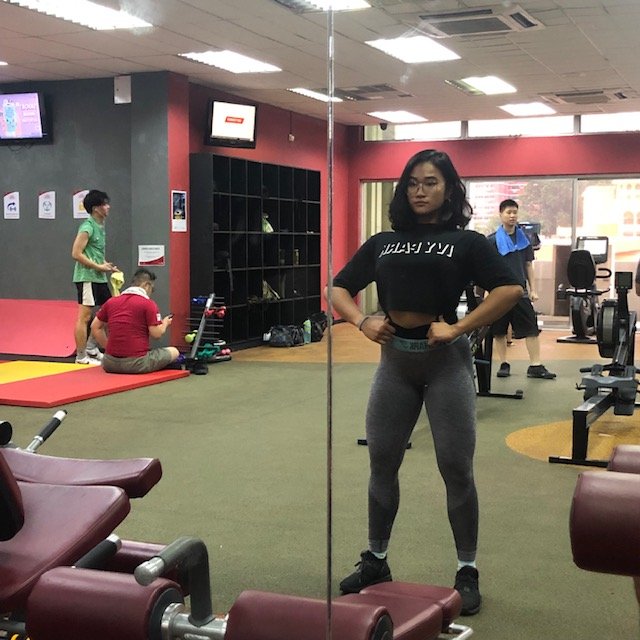Nur Afiqah binte Zainal Abidin was diagnosed with Bulimia at the age of 16. Take a look as we unravel different ways she overcomes her disorder.
Story by Nur Syarafina | Photos by Nur Afiqah
Nur Afiqah binte Zainal Abidin, 23, struggled with eating ever since she was five. Today, she is a freelance personal trainer while also pursuing her studies in a nutrition course.
To say her recovery wasn’t an easy journey is an understatement, as it took more than a decade to heal from her painful ordeal.
Her Eating Disorder Journey
Since young, her family and relatives would always criticize the food she was eating and constantly pick on her. Emphasising that the food she ate was too much. She then became very mindful and started weighing herself by the age of seven.
For the next couple of years, Afiqah would exercise while starving herself by going on clear liquid diets to be as skinny as possible.
Subsequently, she kept feeling fatigued and experiencing many sleepless nights. She grew tired of starving and wanted to recover on her own. However, the thought of having food inside her stomach kept bugging her. Without any proper guidance or help, she started bingeing and purging.
But still, the worst had yet to come.
Her Experience While Hospitalised
With her irregular eating habits and her ‘O’ levels nearing, she felt stressed out and unworthy of herself. She became suicidal and uninterested in her studies. One of her teachers soon noticed her troubling performance in school and referred her to the school counsellor.
Soon after, she took a gap year from school and was diagnosed with Bulimia disorder — it led to her getting hospitalised for a couple of months.
She recalled her hospital stay to being imprisoned.
Afiqah was always under supervision. She had to eat in the dining room with others who shared similar struggles and eat within the time given.
Afiqah says, “From there, the staff would time us. We cannot take too long or too fast to eat. If they see us shaking our legs or talking, they would tell us to stop. Throughout the whole time, they are just looking at you eating. If you exceed the time, they will give something else, on top of what you already have.”
Her Recovery Journey
Despite dealing with her disorder and going in and out of the hospital, she eventually got tired of how others looked at her.
Besides, going to the gym made her feel much stronger and empowered to go through with life. Her perception had drastically changed once she grew her interest in lifting weights.
Afiqah adds, “I had to accept the fact that I am not going to look like people on the magazine or runways. It was a whole journey which took a lot of reflecting and trying to understand myself.”
Afiqah lifting weights
Moving Forward
While Afiqah was recovering, she learnt to have more self-compassion and acceptance.
Afiqah says, “I know it gets really hard but know that your body is always trying to show up for you, even if you don’t feel like it mentally. It is always trying to do its best to keep you alive, even if you don’t feel good about yourself. So try to give it a bit more compassion because I think it deserves it too.”





